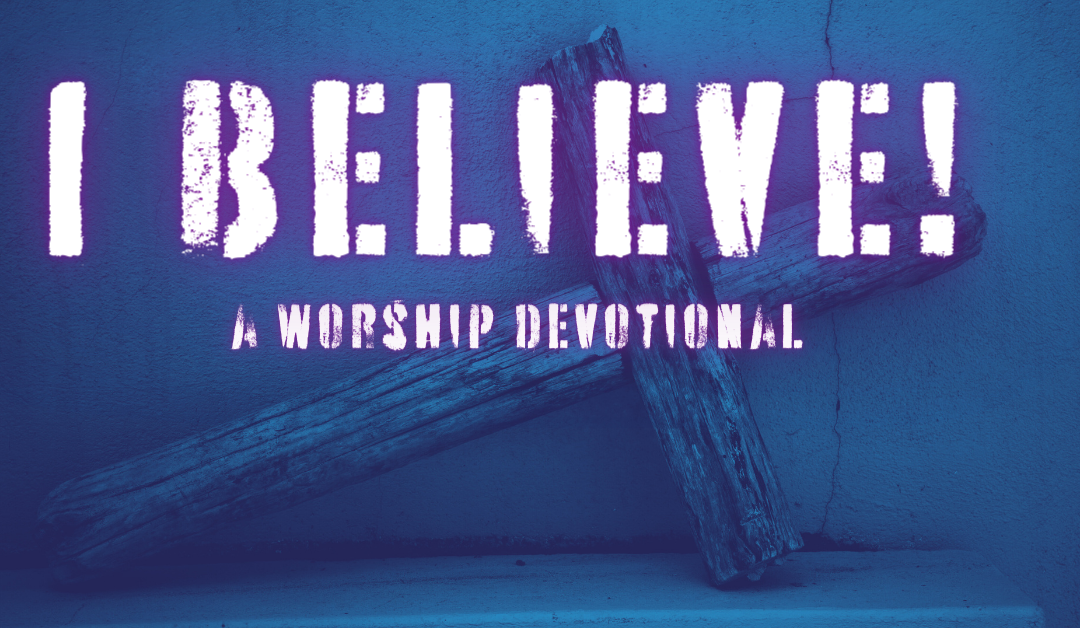“I believe there is one salvation
One doorway that leads to life
One redemption, one confession
I believe in the name of Jesus Christ,”
I Believe, Phil Wickham
“They devoted themselves to the apostles’ teaching and to fellowship, to the breaking of bread and to prayer.”
Acts 2:42, NIV
I grew up in well established churches with properly and clearly expressed statements of faith.
These churches focused on equipping their congregants theologically.
Being in worship ministry, over the years, I have found myself all over the place. From reformed churches to charismatic churches and all the grey areas in between.
In studying the New Testament it becomes clear to me that there was an established and approved understanding of the Gospel – even if it was perhaps haphazardly and informally compiled – which we can refer to as the Apostles’ teaching. In the centuries that followed the church, through various councils and committees, would attempt to organise this into more formal categories and confessions.
One of the biggest pushbacks I have experienced, especially in the charismatic movement, is the idea that an emphasis on good theology is pharisaical and puts unnecessary restrictions upon the working of the Holy Spirit and the life of the believer.
It seems to me that many believers would rather ‘live by the spirit’ – but by which spirit?
The Bible makes it clear that Jesus did not come to do away with the law and the prophets, but to fulfil it. Living by the Spirit of God leads to a deeper understanding, greater appreciation and better application of the Law and the Prophets in our own faith journey.
One of the things most disconcerting about those involved in certain ‘moves of God’ is the idea that there is no set confession or statement of belief. One of the most troubling revelations is the fact that even leaders in the Body – preachers and teachers – have little or even no understanding of even basic concepts like the Godhead, the divinity of Jesus and the personage of the Holy Spirit and are tossed to and fro by every new wind of ‘revelation’.
And it is because of a lack of proper theological exposition and meditation in the church.
The legendary physicist Richard Feynman is quoted as saying that if you can’t explain an idea to an 8 year old, chances are you don’t understand it yourself.
C.S. Lewis said: “If you cannot translate your own thoughts into uneducated language, then your thoughts are confused. The power to translate is the test of having understood one’s own meaning.”
And that is exactly what the creeds and confessions of old attempted to do: to take vast amounts of theological exposition and condense it into easy to read, easy to understand – almost viral – statements of what we as Christians believe.
The fact is this – the Bible is actually really easy to understand. So is theology.
And yes, good theology can be a great source of unity in the church but it is also divisive. It is divisive because it makes clear the separation between the sheep and the goats, the wheat and the chaff, of our own minds.
It is easy for the Gospel and our understanding of spiritual things to become complicated and tangled up like a pair of earphones in a junk-drawer – but with just a little effort on our side we can keep it simple, clear and concise.
I want to challenge you today to clarify your own understanding of your faith.
What is your confession?
What do you believe?
And would you be able to translate even the more complex aspects of your faith into language that an 8 year old could understand?
A good place to start is by looking at the creeds and confessions of those who have come before. As a starting point I would recommend that you take a look at the Nicene Creed. Read it. Memorise it if possible. Commit it to mind and take it to heart.
If you are up to a challenge I would urge you to start a journal and put your thoughts down on paper – this way you will have a record of your own growth in understanding, and hopefully a map you can use to explain and describe the landscape of your faith to those in your personal mission field.
This is the first step in embracing proper, healthy theology in the church. This is the first step towards growing in your own understanding of the faith (the application of the Bible as the source of what we believe) and in helping others grow as well.
Good theology does not put restrictions on the life of the believer, but rather creates the space in which to grow.
These statements guard the purity of our faith. They guard our minds and hearts by establishing us in truth and keeping us away from controversy.
What do you believe?
And how will you share these simple, unadulterated truths with others?
Prayer: Lord, help me to have a clearer vision of what I believe. As I read Your Word, as I listen to the preaching of Your Word, and as I strive to share and live Your Word – help me to stay true to Your Word. Give me understanding. Help me express truth boldly and concisely. Help me bring across the Gospel of Your Kingdom clearly. Let me never wander or stray, but let me stay faithful to Your Word in everything I do and say. In Jesus Name. Amen.

